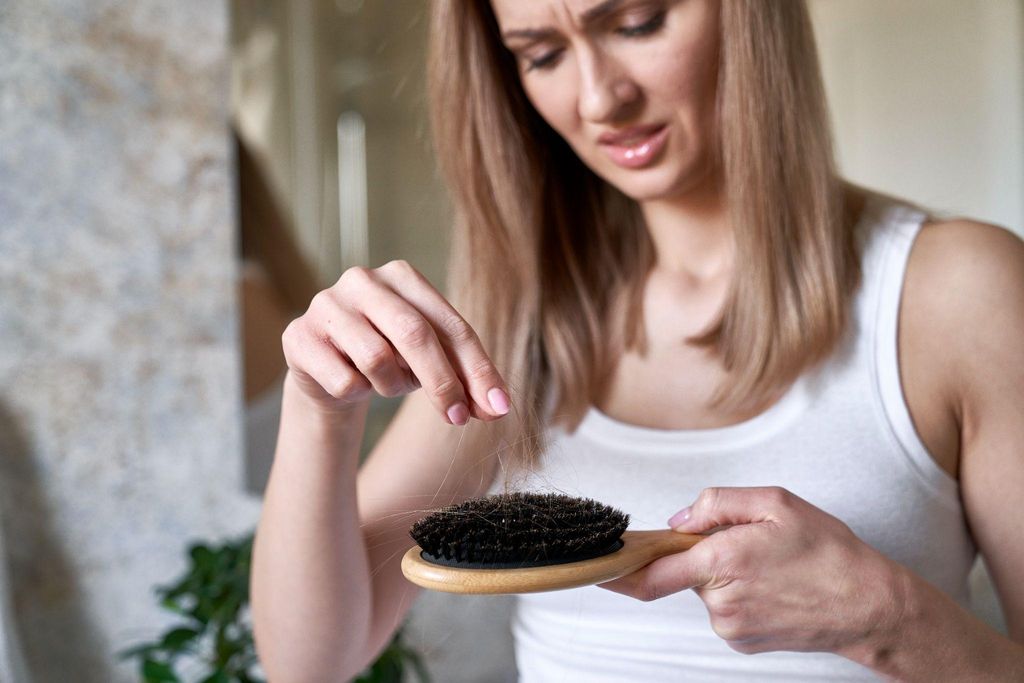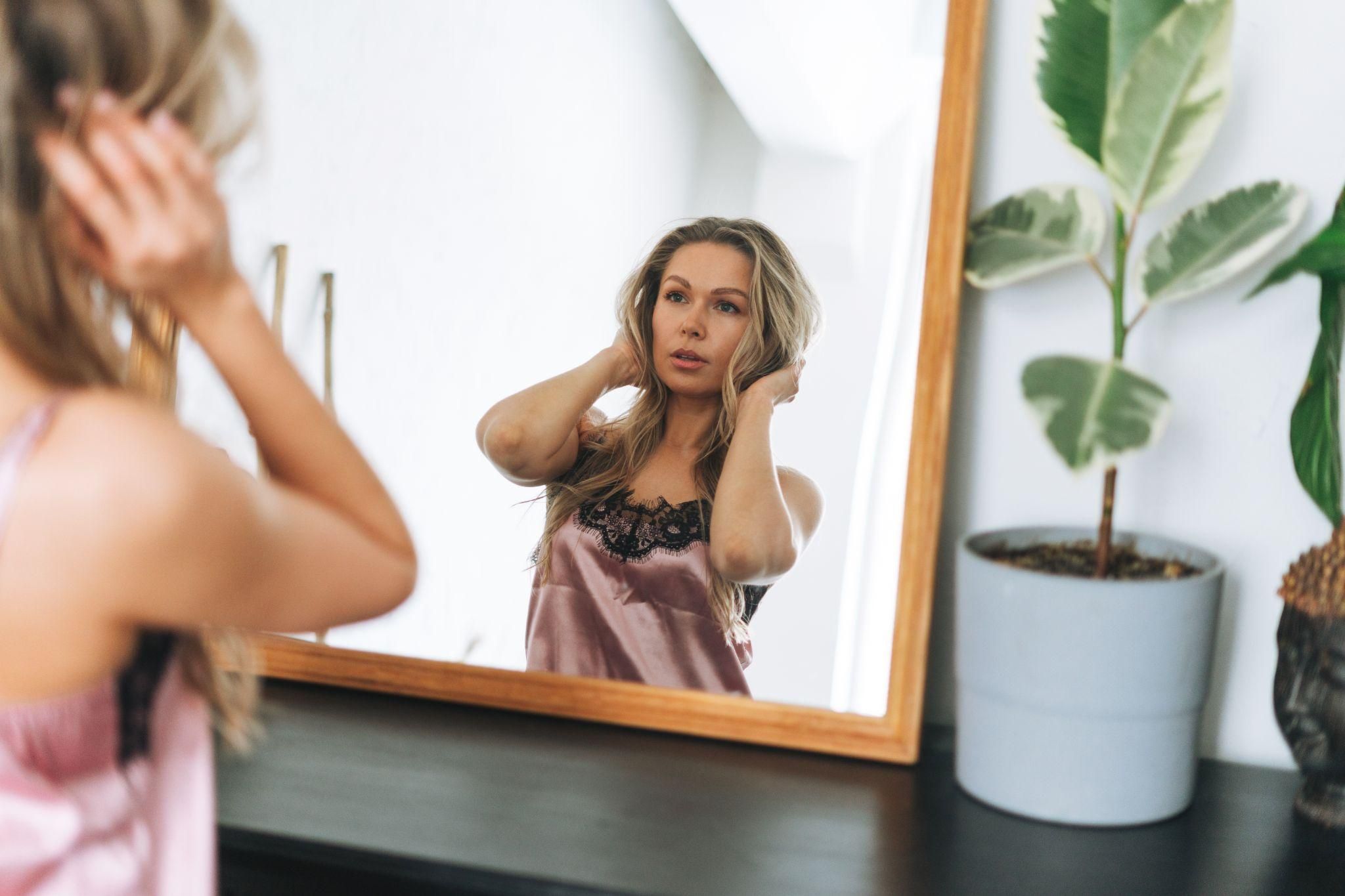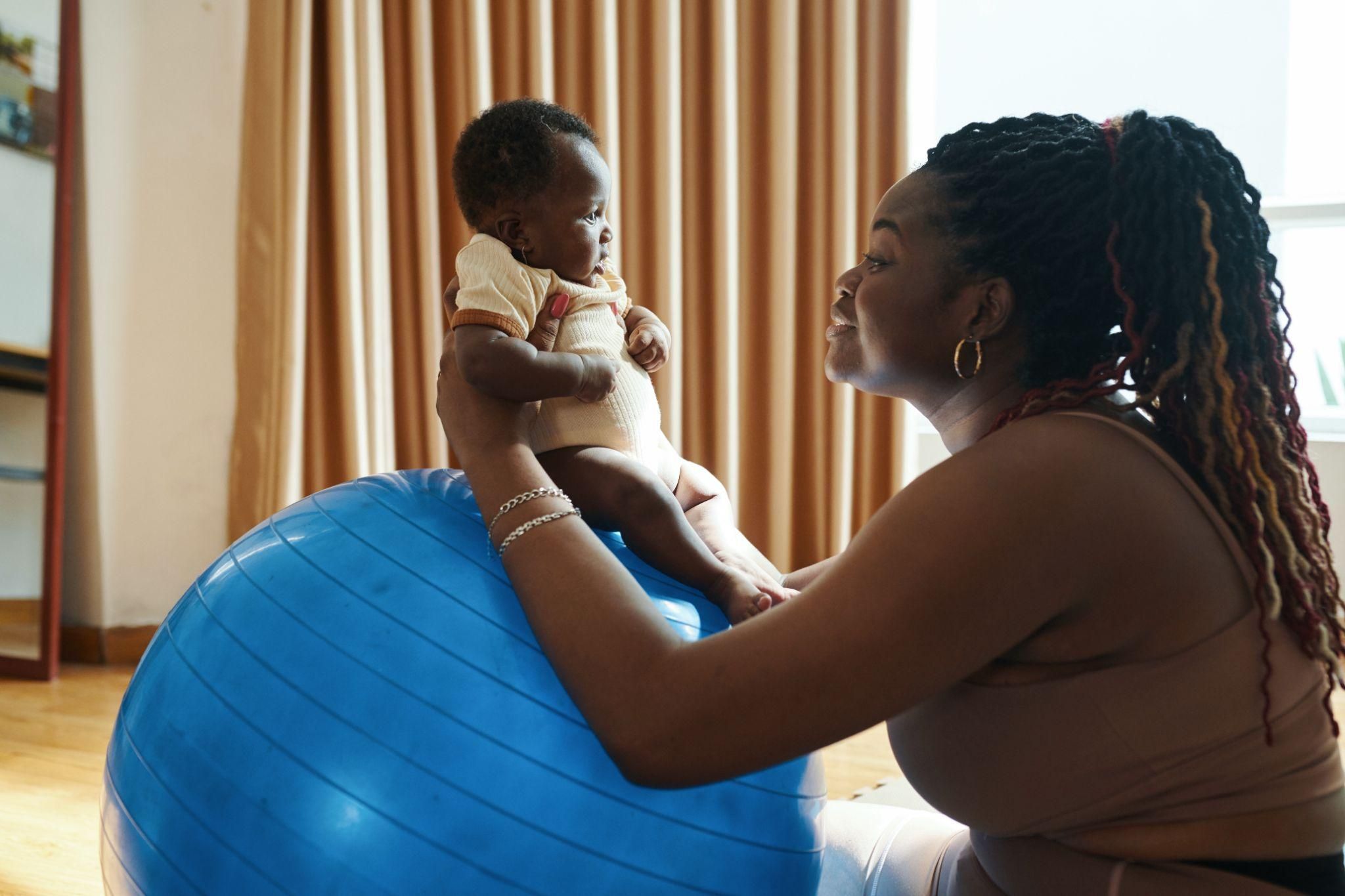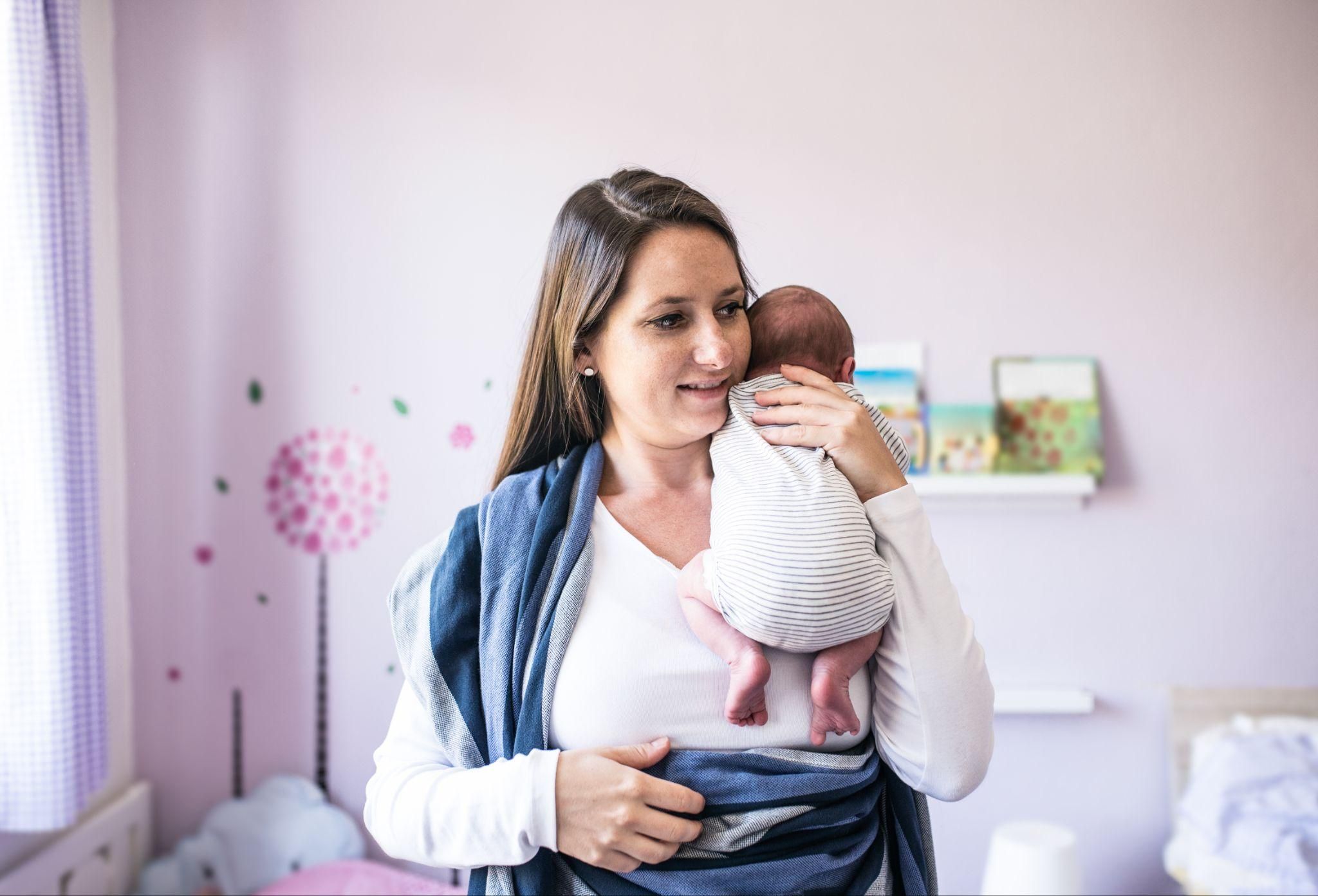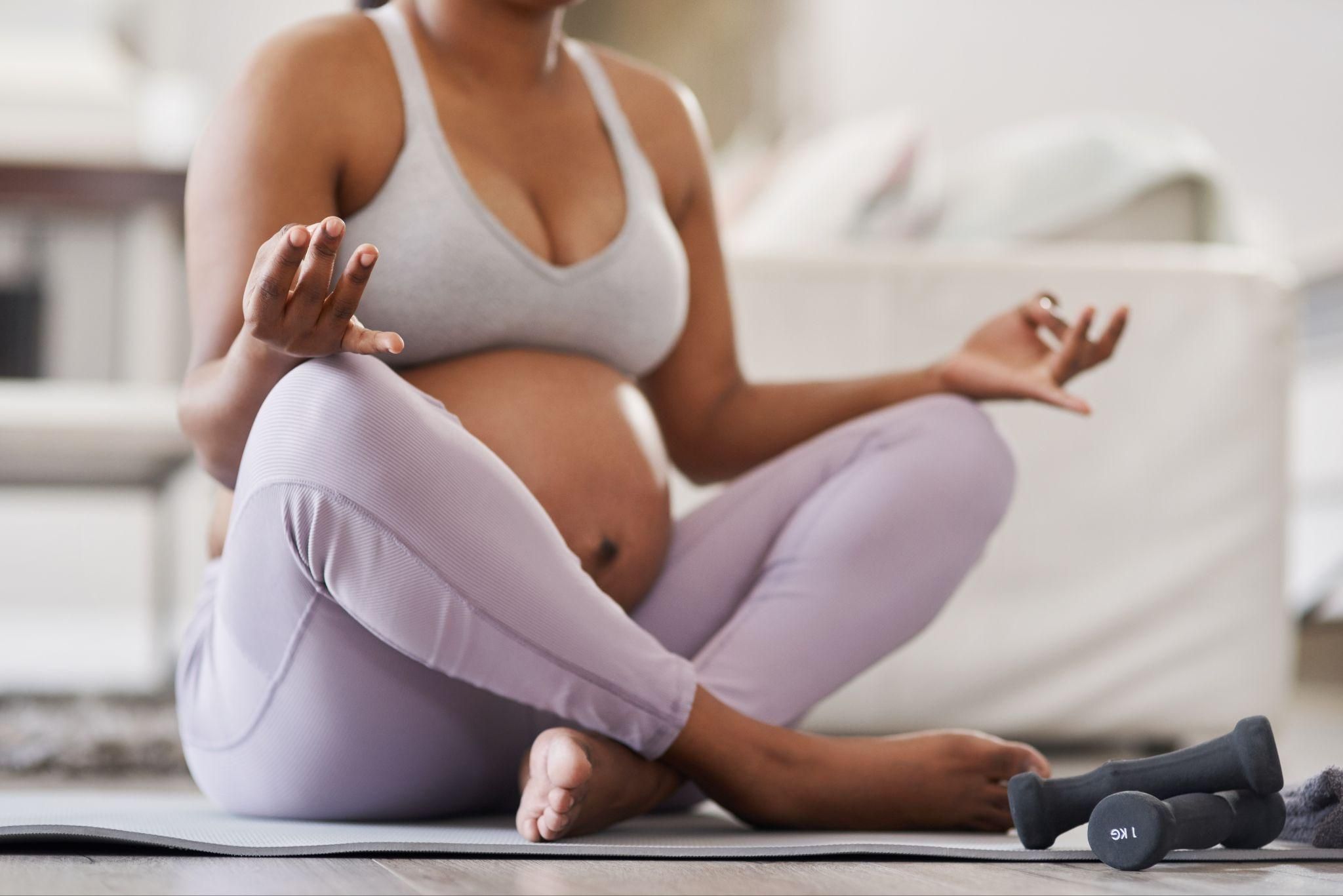Introduction
Postpartum hair loss is a common concern for many new mothers. This condition, also known as telogen effluvium, is caused by hormonal shifts after childbirth. While it’s a natural and temporary phase, excessive hair shedding can be distressing. Fortunately, there are effective strategies to manage postpartum hair loss and encourage healthy hair growth.
In this guide, we’ll discuss actionable steps for preventing hair loss after birth, focusing on antenatal care, nutrition, stress management, and self-care routines. We’ve included trusted sources and shoppable links to help you easily access recommended products and services.
Understanding Postpartum Hair Loss
Why Does Postpartum Hair Loss Happen?
During pregnancy, elevated oestrogen levels keep hair in the growth phase longer, resulting in thicker, more voluminous hair. After delivery, these hormone levels drop, causing more hair follicles to enter the resting phase. This leads to shedding, typically peaking three to four months postpartum.
Is It Permanent?
Postpartum hair loss is temporary. Most women notice regrowth within 6-12 months. However, proactive measures during pregnancy and postpartum can minimise shedding and speed up recovery.
Source: American Academy of Dermatology Association
Antenatal Care for Healthy Hair Growth
Why Antenatal Care Is Essential
Antenatal care lays the foundation for postpartum health, including hair health. By addressing nutritional deficiencies, managing stress, and attending regular antenatal appointments, you can reduce the risk of excessive hair loss.
Key Components of Antenatal Care:
Regular Checkups: Healthcare providers monitor your health and address potential issues like anaemia or thyroid imbalances.
Antenatal Vitamins: Supplements containing folic acid, iron, biotin, and zinc support hair growth.
Antenatal Support Groups: Joining a support group provides emotional reassurance and practical tips for postpartum recovery.
Shop Now: Top-Rated Antenatal Vitamins for Healthy Hair
Nutrition for Hair Health During and After Pregnancy
Essential Nutrients for Hair Growth
Protein: Hair is primarily made of keratin, a protein. Incorporate eggs, lean meats, tofu, and lentils into your diet.
Iron: Iron deficiency is a common cause of hair thinning. Add spinach, red meat, and fortified cereals to your meals.
Omega-3 Fatty Acids: Found in salmon, walnuts, and flaxseeds, these nourish the scalp and hair follicles.
Vitamin D: Supports healthy hair follicles. Get it from sunlight, fortified foods, or supplements.
Zinc and Selenium: These trace minerals protect hair follicles and promote regrowth. Sources include nuts, seeds, and shellfish.
Meal Plan Ideas for Healthy Hair Growth
Breakfast: Greek yoghurt with chia seeds, nuts, and fresh berries.
Lunch: Grilled chicken salad with spinach, avocado, and quinoa.
Snack: Almonds and a small smoothie with spinach and banana.
Dinner: Baked salmon with roasted sweet potatoes and steamed broccoli.
Managing Stress for Healthy Hair
How Stress Impacts Hair Growth
Stress is a significant factor in hair shedding. Elevated cortisol levels can push hair follicles into the resting phase, prolonging hair loss. Incorporating relaxation techniques during the antenatal and postpartum periods can prevent this.
Antenatal Yoga for Relaxation
Antenatal yoga combines physical stretches and mindfulness to reduce stress and improve blood flow to the scalp. It also promotes overall hormonal balance.
Recommended Poses:
Child’s Pose (Balasana): Relieves tension and enhances circulation.
Cat-Cow Stretch: Improves flexibility and stimulates scalp blood flow.
Downward-Facing Dog: Promotes overall circulation and relaxation.
Join Now: Best Online Antenatal Yoga Classes
The Benefits of Antenatal Massage
A prenatal massage is another excellent way to manage stress and improve scalp circulation, which indirectly supports hair health.
Benefits of Antenatal Massage:
Promotes blood flow to hair follicles.
Reduces cortisol levels.
Encourages relaxation during pregnancy.
Book Now: Certified Prenatal Massage Providers Near You
Building a Hair Care Routine
Postpartum Hair-Friendly Practices
Gentle Cleansing: Use a sulphate-free shampoo that doesn’t strip natural oils.
Hydration: Condition hair regularly to prevent dryness and breakage.
Avoid Tight Hairstyles: Opt for loose styles like braids or buns to reduce tension on the scalp.
Detangle Gently: Use a wide-tooth comb to minimise breakage.
Shop Now: Sulphate-Free Hair Products for Postpartum Mothers
Scalp Care for Regrowth
Regular scalp massages can stimulate blood flow and encourage regrowth. Essential oils like rosemary and castor oil are particularly effective for nourishing hair follicles.
DIY Scalp Massage:
Warm a small amount of oil in your hands.
Use your fingertips to massage your scalp in circular motions for 5-10 minutes.
Rinse with a mild shampoo.
Shop Now: Nourishing Hair Oils for Scalp Health
Leveraging Antenatal Clinics and Education
Regular Antenatal Checkups
Visiting an antenatal clinic ensures your nutritional and health needs are met. Healthcare providers can identify and treat conditions like anaemia or thyroid imbalances that may contribute to hair loss.
Antenatal Classes for Practical Advice
Attending antenatal education sessions provides valuable knowledge on managing postpartum changes, including hair loss. These classes often cover self-care routines, stress management, and nutrition tips.
Find Classes: Antenatal Classes Near Me
Supplements for Postpartum Recovery
Postnatal Supplements for Hair Health
In addition to antenatal vitamins, postnatal supplements containing biotin, collagen, and silica can support hair recovery. Always consult your doctor before starting new supplements.
Shop Now: Top Postnatal Supplements for Hair Regrowth
When to Seek Medical Advice
If postpartum hair loss persists beyond a year or worsens significantly, consult a dermatologist or trichologist. Conditions like alopecia or scalp infections may require targeted treatments.
Learn More: American Academy of Dermatology
Conclusion
Preventing hair loss after birth starts with proactive care during the antenatal period. By attending regular antenatal appointments, maintaining a nutrient-rich diet, managing stress with practices like antenatal yoga, and following a hair-friendly routine, you can minimise shedding and promote regrowth. Remember, postpartum hair loss is temporary, and with patience and self-care, your hair will recover.
References
- The Ultimate Antenatal Classes
Prepare for labour, birth, and baby care with nine experts, including senior NHS midwives and an award-winning obstetrician!
https://unii.com/en/journey/ultimate-antenatal-classes

